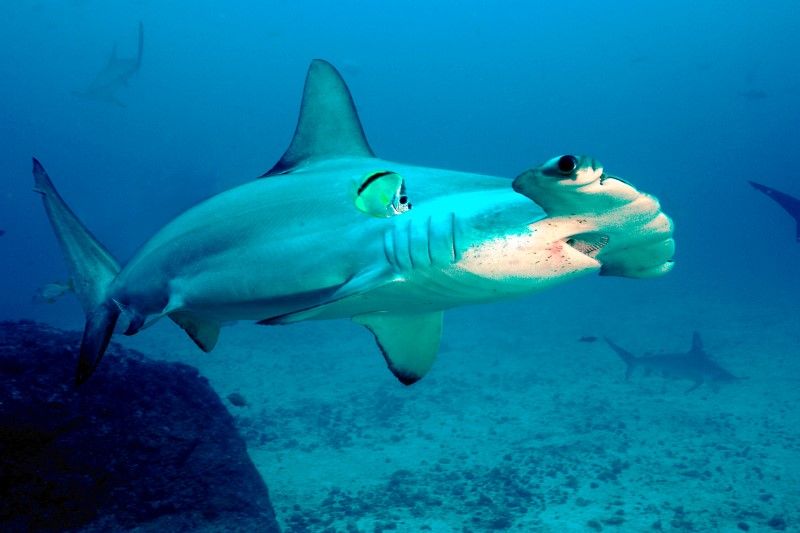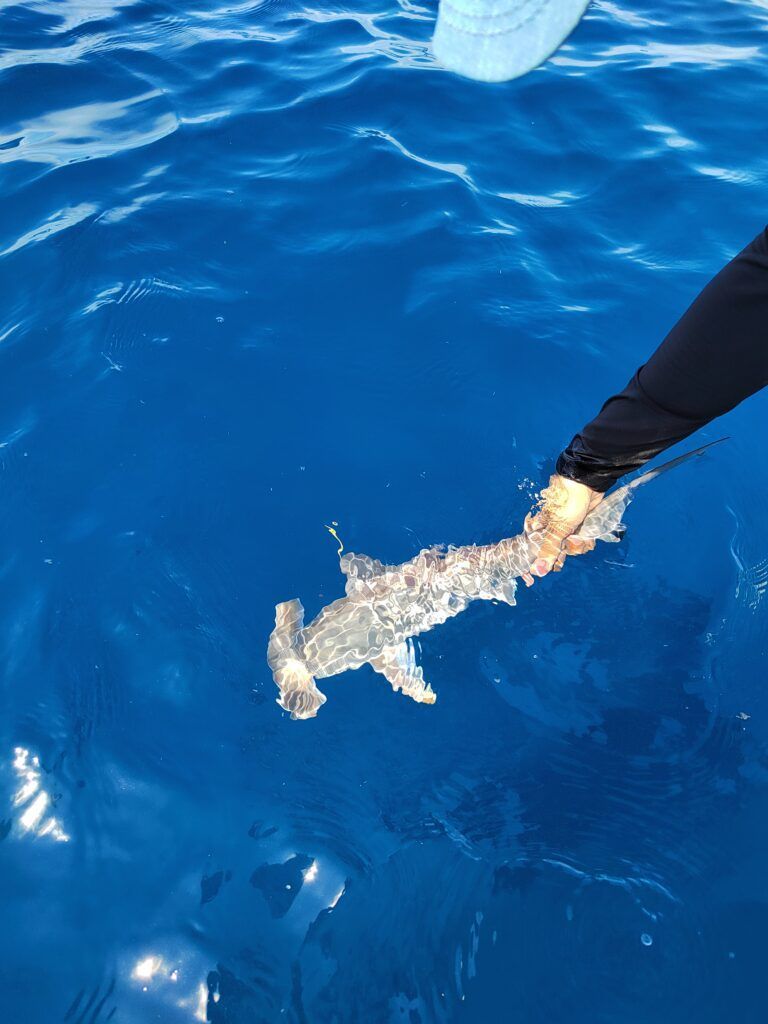Scalloped hammerhead sharks in the Pacific of Guatemala

These striking sharks are under threat from fishing and are classified as Critically Endangered.
Scalloped hammerhead sharks live in groups of up to 100 individuals in tropical and temperature waters. Adults live in deep water further out to sea, but female sharks come in to coastal waters to breed, often using mangroves and shallow waters rich in nutrients and further from predators to give birth to their young.
The largest number of scalloped hammerhead sharks are found in the Pacific of Guatemala during the rainy season between May and September, when females come to the coastal mangroves to give birth (these sharks give birth to live pups, and don’t lay eggs). Unfortunately, gillnet fishing happens in this area, and young scalloped hammerheads are often accidentally caught in nets and killed. This is a huge threat as the species have a slow reproductive rate and fewer sharks are reaching adulthood, giving them the status of Critically Endangered.
Creating a shark nursery

Julio Sánchez Jiméne and the Blue World Foundation in Guatemala are beginning a project to learn more about scalloped hammerhead nesting areas and to protect the species. Over the course of 2024, they are aiming to catch 200 young scalloped hammerhead sharks and attach radio tags to them. This will allow them to track the movements of the young sharks and see which areas of the coastal waters they use the most. From this information, they’re hoping to establish a marine protected area around the most important nursery sites, so the young scalloped hammerheads will be protected from fishing nets.
The team will use the help of local fishermen to catch and tag the sharks. By holding meetings with the fishing community, they hope to gain their support and encourage fishermen to return tags if they catch any tagged sharks, by exchanging the tag for bags of food supplies. They’ll present their results to the Guatemalan Fishing Authority with the hope that their evidence will encourage the creation of the marine protected area for the shark nursery.
We want to give scalloped hammerhead sharks a brighter future; with your help we can make a difference.
Header image credit Wiki Commons
